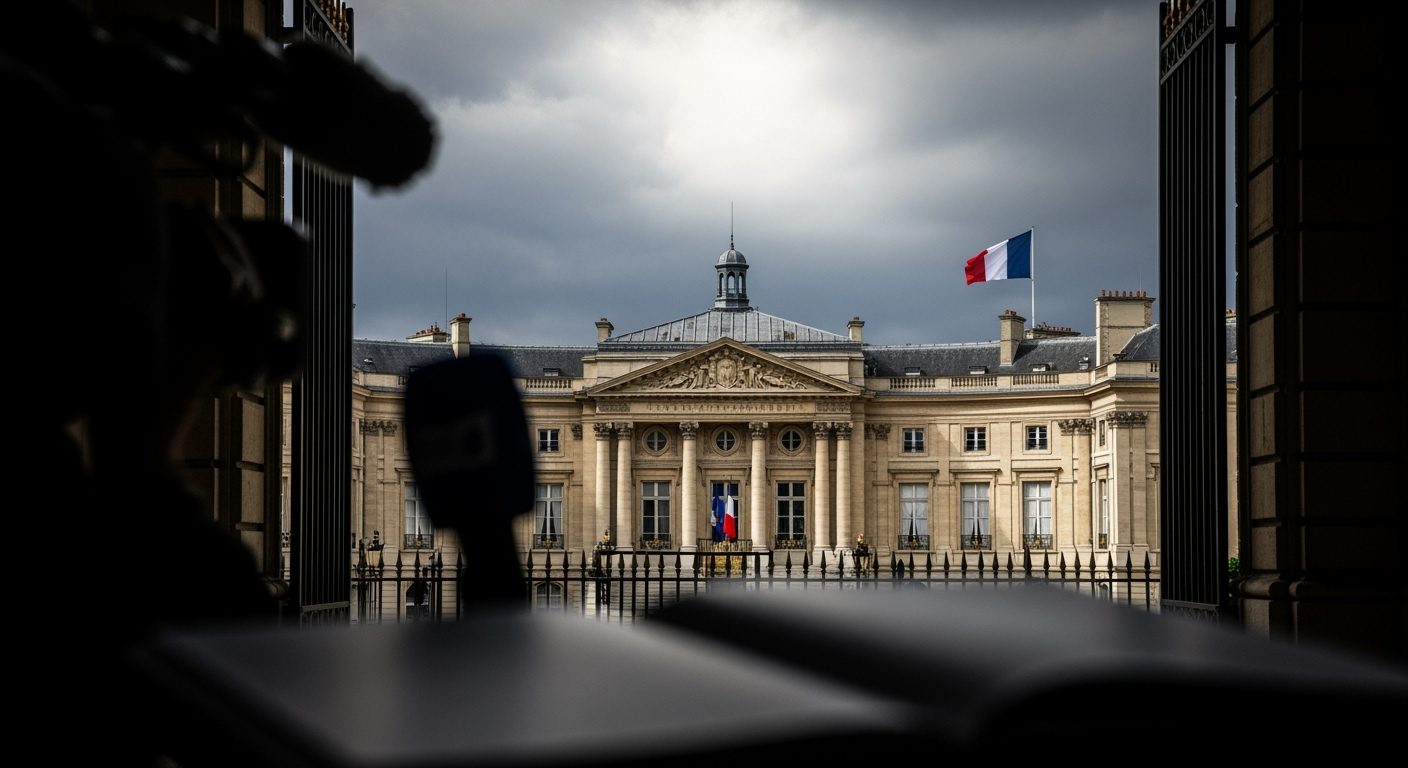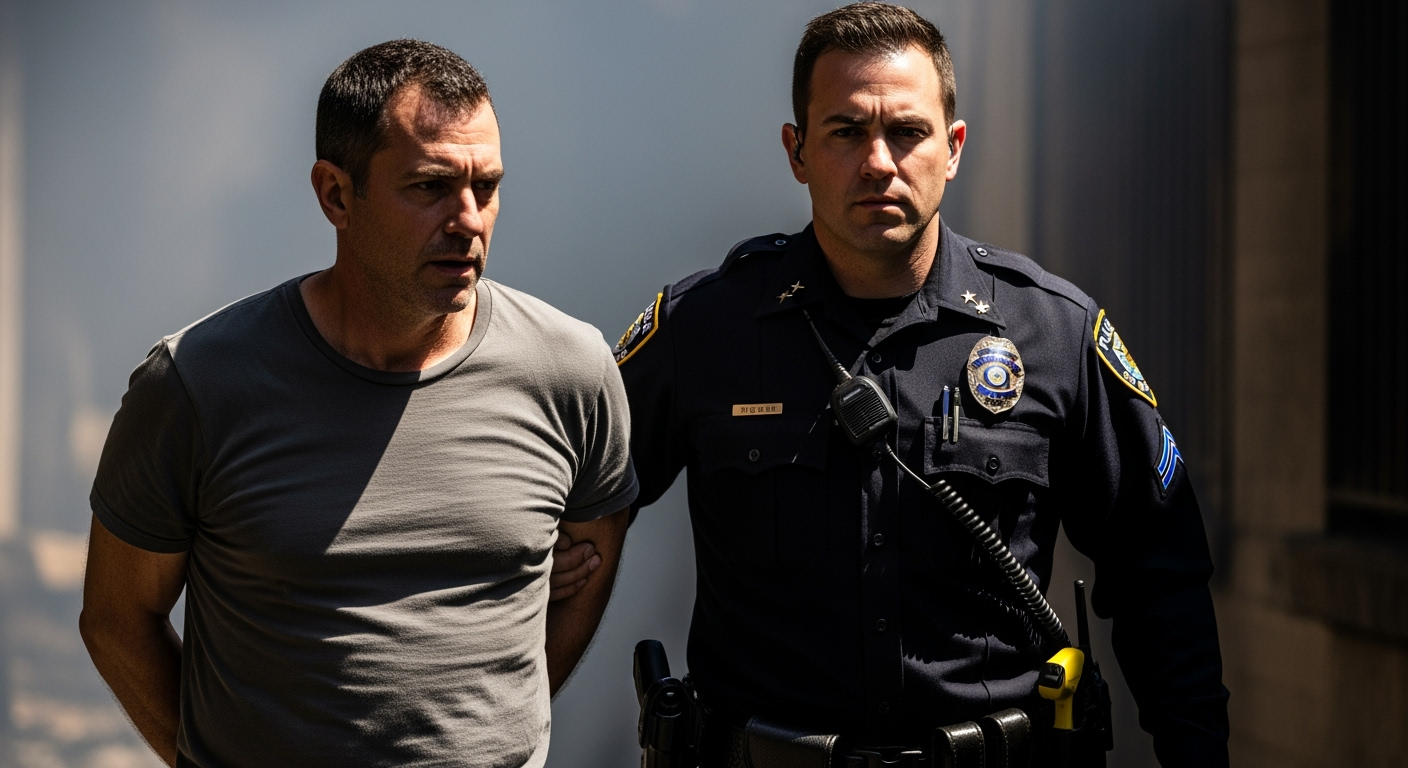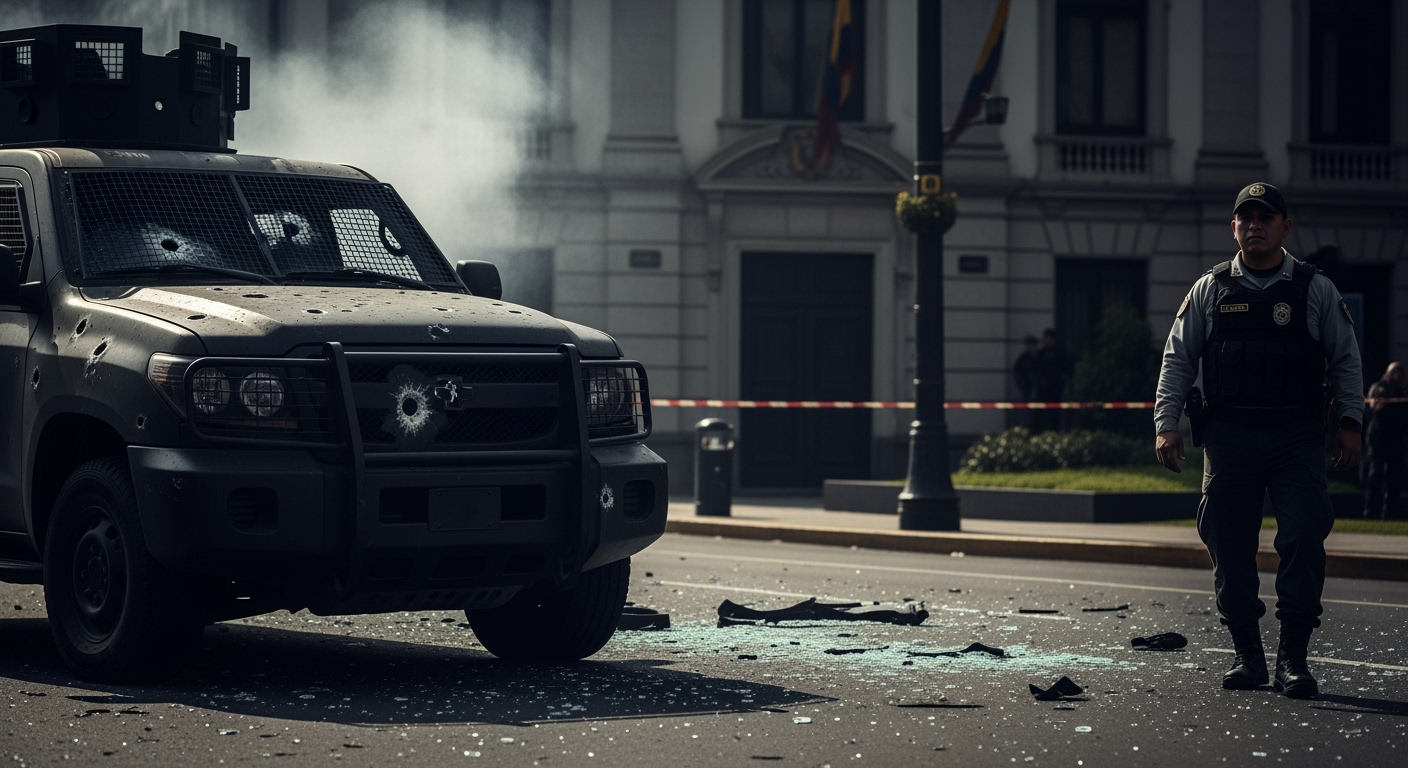Related Articles

French Political Stalemate Nears Resolution as New Prime Minister Expected Within 48 Hours




QUITO, Ecuador – Ecuadorian President Daniel Noboa's motorcade came under a violent assault on Monday, October 7, 2025, in what his government has unequivocally labeled an assassination attempt, further inflaming an already volatile political landscape. The incident, which saw Noboa's vehicle reportedly struck by bullets and pelted with rocks by a crowd of approximately 500 protesters in Cañar province, marks a dangerous escalation in nationwide unrest sparked by controversial fuel subsidy cuts. While the president emerged unharmed, five individuals have been arrested and face charges of terrorism and attempted assassination, underscoring the profound instability gripping the Andean nation.
The alleged attack unfolded as President Noboa was en route to inaugurate a water treatment plant in the municipality of El Tambo, within Cañar province. As his motorcade navigated the area, it was met by a large crowd of demonstrators. Environment and Energy Minister Ines Manzano, who formally reported the incident to prosecutors as an assassination attempt, stated that Noboa's armored Chevrolet Suburban bore "signs of bullet damage" in addition to shattered windscreens and windows caused by thrown stones and bricks. The Defense Minister, Gian Carlo Loffredo, echoed Manzano's sentiment, describing the event as a "clear assassination attempt and an act of terrorism." Footage released by the presidency reportedly captured the moment projectiles impacted the vehicles, with a voice heard urging, "Heads down! Heads down!" as the convoy sped away. Despite the severity of the attack, President Noboa was not injured and continued with his scheduled activities. Following the incident, five suspects were apprehended by authorities. Noboa's office quickly announced that these individuals would be charged with terrorism and attempted assassination.
The violent confrontation is inextricably linked to widespread demonstrations that have plagued Ecuador for weeks. The unrest ignited following the government's decision in mid-September to phase out long-standing diesel subsidies, a move designed to save an estimated $1.1 billion annually. The Noboa administration argues that these savings are crucial for stabilizing the nation's economy and will be redirected to support essential social and security programs, as well as aid small-scale farmers and transport workers. However, the decision has been met with fierce opposition, particularly from the Confederation of Indigenous Nationalities of Ecuador (CONAIE), the country's largest indigenous organization. Critics contend that ending the subsidies will inevitably lead to a significant increase in the cost of living, disproportionately affecting vulnerable communities.
CONAIE has spearheaded national strikes, organizing marches and establishing roadblocks across multiple provinces. While the indigenous group has called for an end to the "war policy" they believe Noboa is pursuing with his emergency decrees, they have also denied direct involvement in the attack on the presidential motorcade. CONAIE leaders have, in turn, accused security forces of provoking violence against peaceful demonstrators and reported the "arbitrary detention" of five of their members in connection with the incident. This dynamic highlights a deepening chasm of mistrust between the government and indigenous movements, whose past demonstrations have historically led to the ousting of three Ecuadorian presidents between 1997 and 2005.
The incident with President Noboa's convoy is not an isolated event but rather a stark manifestation of Ecuador's deepening crisis of insecurity and political volatility. The country has been grappling with a dramatic surge in violence linked to organized crime and drug trafficking. Positioned strategically between Colombia and Peru, the world's largest cocaine producers, Ecuador has emerged as a critical transit hub for narcotics, attracting international criminal organizations including Mexico's Sinaloa Cartel, Italy's 'Ndrangheta, and Albania's mafia. This competition for control over trafficking routes has transformed Ecuador into one of the most dangerous nations in the region.
President Noboa, the youngest president in Ecuador's history at 37, has adopted a tough stance on security since taking office, declaring an "internal armed conflict" against criminal gangs and repeatedly implementing states of emergency across various provinces. These emergency declarations grant expanded powers to security forces and temporarily suspend certain constitutional protections, such as freedom of assembly. The latest extensions cover several provinces, with a focus on areas experiencing significant unrest and violence. This recent attack on his motorcade also serves as a chilling reminder of the assassination of presidential candidate Fernando Villavicencio in 2023, underscoring the extreme risks faced by political figures in the country. Furthermore, this marks at least the second reported attack on Noboa's motorcade, with a previous incident in September involving protesters attacking his convoy with rocks, fireworks, and molotov cocktails in Imbabura province.
The government's swift condemnation of the incident as an assassination attempt and act of terrorism reflects a firm resolve to suppress what it views as criminal efforts to destabilize the nation. President Noboa has publicly stated that "such actions will not be accepted in the new Ecuador" and that "the law applies to everyone." The decision to charge the arrested individuals with terrorism and attempted assassination sends a strong signal about the severity with which the government is treating the matter. Internationally, the attack has drawn condemnation from several Latin American governments, including Costa Rica, Honduras, and Panama, all of whom expressed solidarity with Ecuador's democratic institutions. The Organization of American States (OAS) also condemned the violent acts, calling them "an assault on democracy."
Despite these condemnations, the domestic political landscape remains deeply polarized. While the government frames the protests as a threat to national stability, indigenous leaders argue that their communities are merely exercising their constitutional right to resistance against policies that will exacerbate economic hardship. The ongoing investigations, including forensic examination of Noboa's damaged vehicle, are expected to shed more light on the precise nature of the attack. However, the competing narratives and deeply entrenched grievances suggest a prolonged period of political tension and social unrest.
Ecuador stands at a critical juncture, navigating a complex web of economic reforms, an intensifying battle against organized crime, and profound social divisions. The alleged assassination attempt on President Noboa underscores the fragility of the nation's political environment and the immense challenges his administration faces in its pursuit of economic stability and public security. The ability of the government to manage these interconnected crises, while maintaining public trust and fostering dialogue, will be paramount to shaping Ecuador's future and determining the trajectory of its democratic institutions.